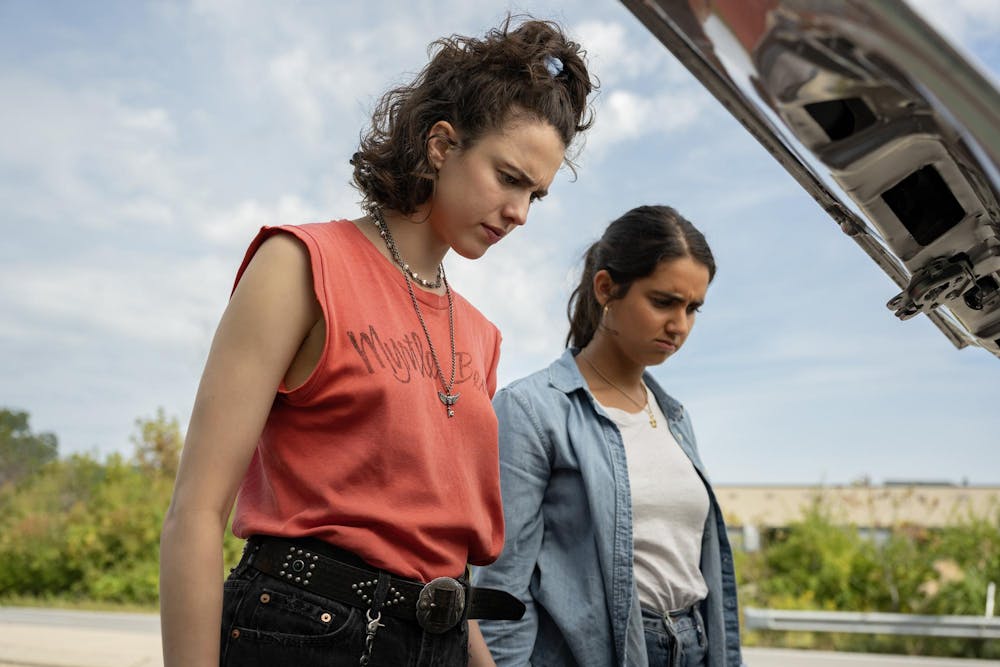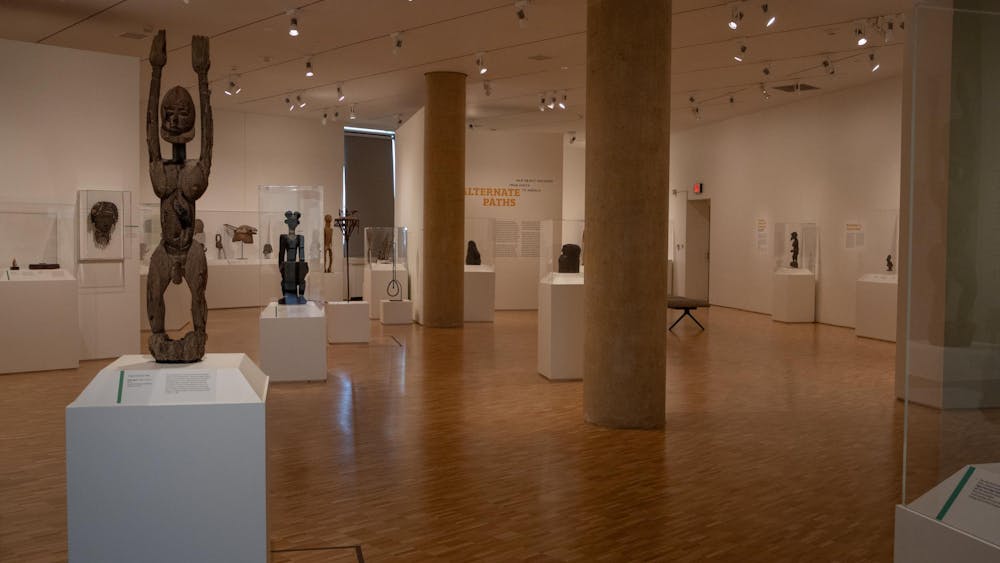This is perhaps my most stereotypical “film bro” take, but I think Joel and Ethan Coen are two of the greatest American directors working today. I love the Coen brothers as much as the Dude from “The Big Lebowski” loves White Russians. I’d even go so far as to say I take pride in being an expert on the “Coenesque.” From their lovably eccentric characters to their critical but oftentimes playful exploration of nihilism and its fallacies, the Coens have mastered the art of making films that are widely accessible and thematically dense.
When it was announced that Ethan Coen would be making his solo directorial debut (the brothers put their professional partnership on hold in the late 2010s) with “Drive-Away Dolls,” a female-centric road trip crime comedy, it felt like the heavens were shining down on me. With each new casting announcement (Margaret Qualley, Pedro Pascal, Matt Damon – you get the idea), my anticipation grew. In what universe would this film be less than great?
Apparently, ours.
Watching “Drive-Away Dolls” made me feel like one of the unlucky schmucks in a Coen brothers film. It features virtually none of the qualities that define their filmmaking style and barely feels like a Coen project at all. It’s like a poorly constructed “Raising Arizona” imitation with hints of “Thelma & Louise.”
“Drive-Away Dolls” follows two women, Jamie (Qualley) and Marian (Geraldine Viswanathan), as they embark on a road trip to Tallahassee, Florida to get out of their respective funks. Jamie, a free spirit whose girlfriend broke up with her because of her infidelity, tries to coax the uptight Marian into letting loose, but old habits die hard. When they find a mysterious briefcase in the trunk of the car they volunteered to drive, they become entangled in a criminal conspiracy.
The film’s general aimlessness is either its biggest offense or its biggest asset depending on your perspective. Its absurdity is sure to charm some audiences, but I found myself constantly wanting more from the narrative, as almost every plot point is either half-baked or expected. I kept waiting for something big to happen or for the stakes to grow, but that relief never came. Even though it’s a breezy 80-minutes long, every scene is haphazardly stitched together through flashy transitions and brief psychedelic montages that don’t make sense until the very end.
Unlike Marge from “Fargo” or Ed and H.I. from “Raising Arizona,” Marian and Jamie aren’t compelling protagonists. They each have one personality trait: Marian is high-strung, and Jamie is impulsive. These characters aren’t developed beyond their archetypal attributes. They don’t need to be multi-dimensional or super complex: It’s a silly movie and the characters should match that tone; but they still need to have unique personalities that make them easy to root for. The best Coen characters are memorable because of their eccentricities.
Qualley and Viswanathan have fine chemistry as the odd couple leads. They embraced the film’s zany atmosphere and went big with their performances. It’s clear that Qualley did her homework. Her turn as Jamie (terrible southern accent included) feels like a mildly successful tribute to the Coens’ goofiest key player: Nicolas Cage in “Raising Arizona.”
The supporting cast is terribly underutilized though. Beanie Feldstein has a few funny moments as Jamie’s police officer ex, but she isn’t given much to chew on in the film’s second half. Pedro Pascal and Matt Damon are in the film for a combined total of about five minutes. I love a good cameo, but their brief appearances left me wanting more. Bill Camp gives the most “Coenesque” performance as Curlie, the unbothered owner of a drive-away car service. He could have been plucked from one of their earlier films.
“Drive-Away Dolls” isn’t all bad; it just feels lazy in comparison to the Coens’ other works. I kept searching for something deeper I could attach meaning to, but the final product lacks their signature philosophical overlay.
Still, the film will undoubtedly find a devoted audience in people unfamiliar with the Coens’ filmography. Plus, it’s hard to be mad at a film that’s so unabashedly queer, sex-positive and original.
There’s something poetic about the contrast between Ethan’s “Drive-Away Dolls,” a fun but sloppy romp involving Henry James and sex toys, and Joel’s “The Tragedy of Macbeth,” a delicately engineered black-and-white Shakespeare adaptation. Now that both brothers have made their own films, it feels reasonable to say I’m desperate for them to collaborate again. Thankfully, it looks like this will be happening sooner rather than later. When asked about their next collaborative project during a recent MasterClass conversation, Ethan said, “it’s a pure horror, and it gets very bloody.” Yeah — give it to me now, please.






